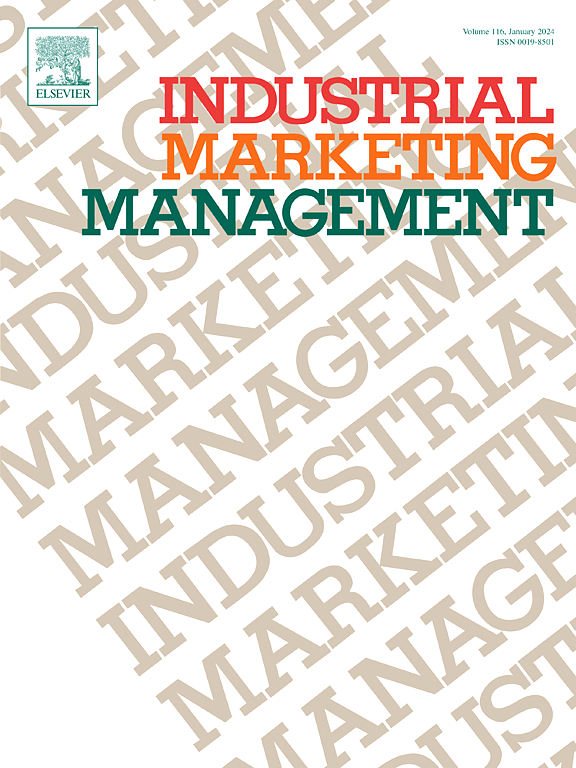PLS-SEM和反思结构:对最近批评的回应和建设性的前进道路
IF 7.5
1区 管理学
Q1 BUSINESS
引用次数: 0
摘要
本文提出了一些批评,认为反射结构测量及其相关的评估标准不适合偏最小二乘结构方程建模(PLS-SEM)。更具体地说,批评者认为反射测量模型只对应于共同因素模型,这是一个既不准确又具有误导性的前提。反射测量模型代表了理论基础和概念化的结构。统计方法,如共因子模型估计、复合模型估计和总和得分回归,使研究人员能够估计方法特定的代理,作为实证研究中理论建立的概念结构的近似值。这些代理根据每种方法固有的统计模型和假设而有所不同。在这种情况下,重要的是要强调,反思性评价标准的使用并不局限于共同因素模型。当应用于复合模型估计时,它不会影响结果的有效性。此外,本文提倡在多方法方法中拥抱不同SEM方法的互补优势,而不是将一种方法定位为另一种方法的对立面。我们相信这一贡献提供了重要的见解和指导,促进了SEM方法及其实际应用的进步。本文章由计算机程序翻译,如有差异,请以英文原文为准。
PLS-SEM and reflective constructs: A response to recent criticism and a constructive path forward
This article addresses criticisms asserting that reflective construct measurement and its associated evaluation criteria are unsuitable for partial least squares structural equation modeling (PLS-SEM). More specifically, critics contend that reflective measurement models correspond exclusively to common factor models, a premise that is both inaccurate and misleading. Reflective measurement models represent theoretically grounded and conceptualized constructs. Statistical methods such as common factor model estimation, composite model estimation, and sum score regression enable researchers to estimate method-specific proxies that serve as approximations for theoretically established conceptual constructs in empirical research. These proxies vary depending on the statistical models and assumptions inherent to each method. In this context, it is important to highlight that the use of reflective evaluation criteria is not restricted to common factor models. When applied to composite model estimation, it does not compromise the validity of the results. Moreover, this article advocates for embracing the complementary strengths of diverse SEM methods within a multimethod approach, rather than positioning one method in opposition to another. We believe that this contribution provides critical insights and guidance, fostering advancements in SEM methodology, and its practical applications.
求助全文
通过发布文献求助,成功后即可免费获取论文全文。
去求助
来源期刊

Industrial Marketing Management
Multiple-
CiteScore
17.30
自引率
20.40%
发文量
255
期刊介绍:
Industrial Marketing Management delivers theoretical, empirical, and case-based research tailored to the requirements of marketing scholars and practitioners engaged in industrial and business-to-business markets. With an editorial review board comprising prominent international scholars and practitioners, the journal ensures a harmonious blend of theory and practical applications in all articles. Scholars from North America, Europe, Australia/New Zealand, Asia, and various global regions contribute the latest findings to enhance the effectiveness and efficiency of industrial markets. This holistic approach keeps readers informed with the most timely data and contemporary insights essential for informed marketing decisions and strategies in global industrial and business-to-business markets.
 求助内容:
求助内容: 应助结果提醒方式:
应助结果提醒方式:


